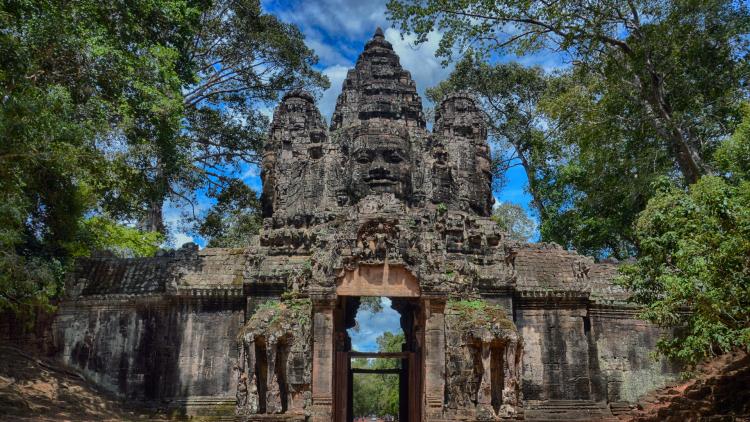Community, Religion, and Conflict in South Asian History

Key information
- Status
- Module not running
- Module code
- 15PHIH041
- FHEQ Level
- 7
- Credits
- 15
- Department
- Department of History
Module overview
In today’s polarising atmosphere, certain political actors and media channels promote a narrative of conflict between communities as inherent to South Asian society. These communities are defined solely by their religion, which, by itself, is presented in a homogenised and non-nuanced way. This perspective, however, ignores the complex history of South Asian society as a tapestry of communities, at times clearly defined, at others overlapping and blurring into one another; sometimes in conflict, but more often in coexistence.
This module will explore different facets of communities in South Asian history, religious and others: what constitutes them, how they positioned themselves in the framework of the larger societies, and how they were represented and interpreted in premodern sources and modern historiography. Examining case studies from the long period beginning with Mahmud of Ghazni down to the twentieth century, the module is organised thematically. We will discuss the cohesion of communities and their boundaries and the gap between all-encompassing religious groups and multifaceted realities, and ask to what extent we can talk about the categories ‘Muslim’ and ‘Hindu’. We will further explore components of group identity, including language and place, images of self and other, conversion, as well as coercion and violence by the side of accommodation and cooperation. Special attention will be given to caste, devotionalism, interreligious contacts, and the tension between the local and the cosmopolitan. Altogether, this module aims at helping students to develop analytical skills to the study of South Asian societies, past and present.
Objectives and learning outcomes of the module
On successful completion of the course, a student will:
- Demonstrate familiarity with central questions in the historiography of South Asia and the place of various communities, and the relations between them, in this framework.
- Understand the multifaceted and changeable nature of societies, polities, and institution in South Asia, past and present.
- Critically evaluate secondary literature on history, identify the motives behind it, and understand the wider intellectual and political contexts within which it was produced.
- Critically think some of the contemporary concepts of social boundaries, categorisation, and identity and their changeable nature.
- Better engage with historiographical debates both orally and in writing, and imrpove ability to form a consistent and well grounded argument.
Scope and syllabus
- Introduction: The Colonial State in Historical Perspective
- Land: Settlement, Property and Rural Society
- Law: Upholding Custom, Rationalizing Authority
- Caste: Colonial Anthropology and Social Power
- Religion: Reform Movements
- Urbanism: Class and Culture in Colonial Cities
- Nationalism: Bourgeois or Subaltern?
- Partition: Politics and Experience
- New Nations: Language and Community
- Enduring Inequalities: Caste, Gender and Religion
Method of assessment
- One 10 minute recorded oral presentation (35%)
- One essay of 2,500 words (65%)
Suggested reading
Introductory bibliography:
There are a series of general histories that you should make good use of.
- Bates, Crispin, Subalterns and Raj: South Asia since 1600 (Abingdon, 2007)
- Bose, S. and Jalal, A., Modern South Asia: History, Culture, Political Economy (London, 1998 and 2003)
- Ludden, David, India and South Asia, A Short History (Oxford, 2002)
- Metcalf, Barbara D. and Metcalf, Thomas, A Concise History of India (Cambridge, 2002)
- Robb, Peter, A History of India (Basingstoke, 2002)
- Sarkar, Sumit, Modern India 1885-1947 (London, 1989)
- Stein, Burton, A History of India (Oxford, 1998)
These also have bibliographic essays and thematic guides to readings on modern South Asian history that you should consult.
In addition, you should look in back issues of journals such as:
Modern Asian Studies (MAS); Journal of Asian Studies (JAS); Indian Economic and Social History Review (IESHR); South Asia (SA); Comparative Studies in Society and History (CSSH); Economic and Political Weekly (EPW)
Convenor
Disclaimer
Important notice regarding changes to programmes and modules
